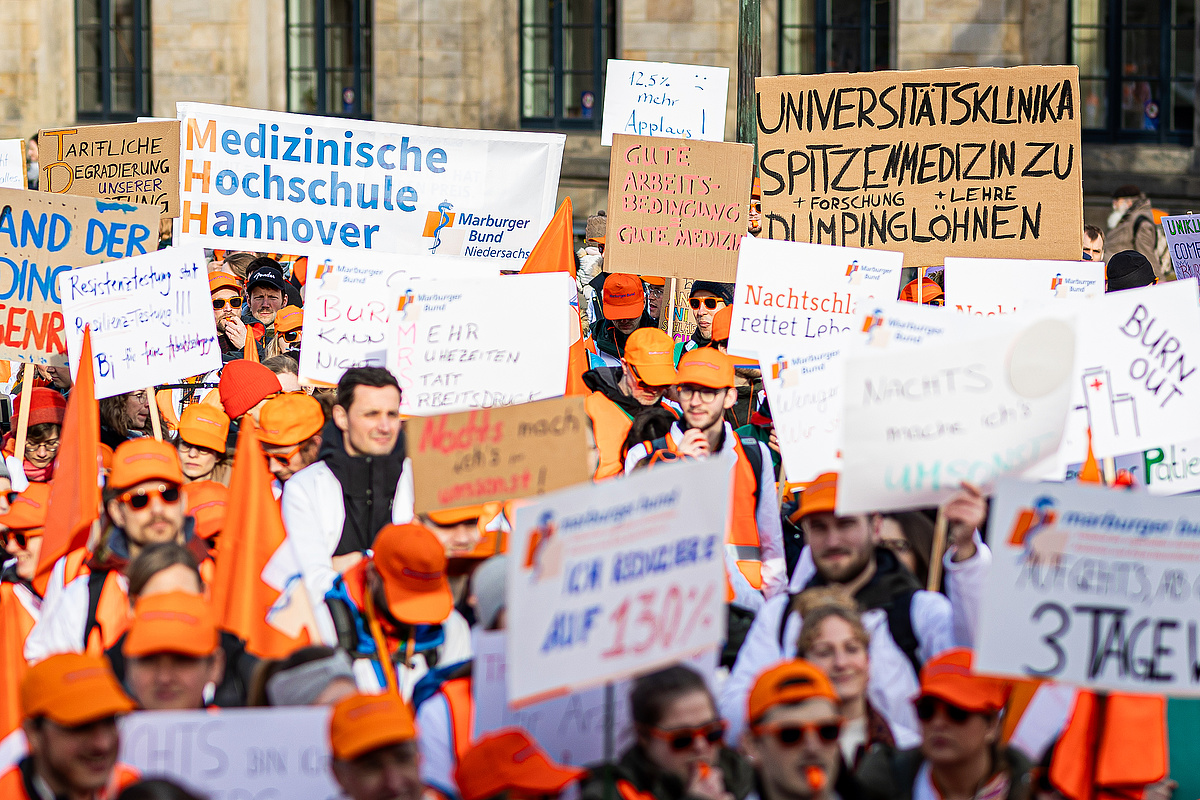Government health sector workers have also lost patience with working conditions and, in the case of the Germans, their incomes have dropped significantly.
The Marburger Bund union, which represents about 20,000 doctors, announced on Friday that collective negotiations over wages for doctors working in the country's 23 university hospitals have stopped in the fourth round, so a warning strike will be organized in federally funded institutions on Friday. March 11. Increased pressure.
Among other things, the union is demanding a 12.5% salary increase and an increase in bonuses for doctors for regular night, weekend and holiday work.
As shown, the basic salary of doctors in university hospitals is approximately 200-600 euros lower than that of doctors in other public hospitals that have longer working hours, and this creates serious tensions in the health sector.
They do not care about urgent cases
The doctors' strike will mean that patients can expect longer waiting times at university hospitals, and during the all-day protest, non-urgent and postponed operations will not be performed, for example, there will be no surgeries. Urgent cases are accepted – subject to separate agreements.
He added that the country's leaders lack the ability to compromise, which is why university hospitals are running out of patience. Andreas Butslar President of the Union.
He pointed out to the Berliner Zeitung newspaper: The shortage of doctors is becoming more urgent, and it is difficult to ensure the supply, because hospitals are no longer attractive to young specialists, who play an important role in the private care of seriously ill patients.
In the 23 university hospitals covered by the collective agreement, a warning strike was already organized at the end of January, when thousands of German doctors went on strike. He went into the street. At the time, the demonstration organizers reported that there were 5,000 strikers in Hanover and several hundred in Freiburg, Tübingen, Ulm, Heidelberg, Munich, Aachen, Cologne and Düsseldorf.
Public transportation in Berlin has stopped
Meanwhile, Berlin's main public transport was halted on Thursday and Friday: subways and trams did not run, and state-run buses also remained at the depot.
According to the Verdi union, which also registered the previous strike of locomotive drivers, and several smaller advocacy associations, wage negotiations with municipally-owned operating companies turned into a conflict, which is why they decided to stop work, with about 130,000 transport employees affected.
In addition to low wages, drivers also complain about regular overtime due to staff shortages. About 600 additional drivers are missing from the system, and billions of euros will need to be invested in vehicles and infrastructure – It has been announced.
Due to the strike, it was impossible for the capital's citizens to travel for two working days, a process that will continue next week in the state of North Rhine-Westphalia, where Verdi representatives announced a similar stop.












































